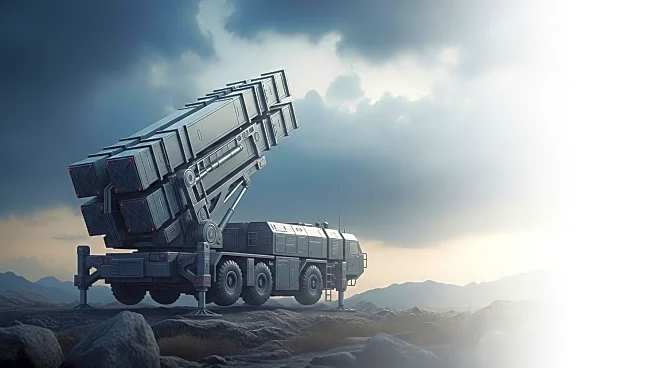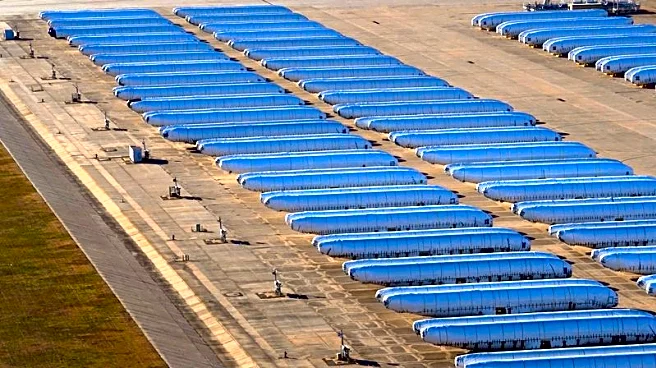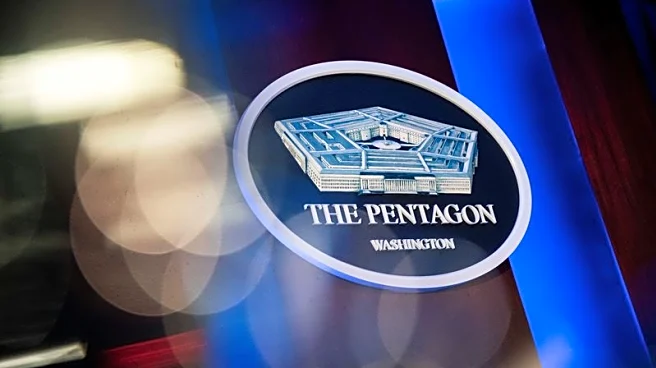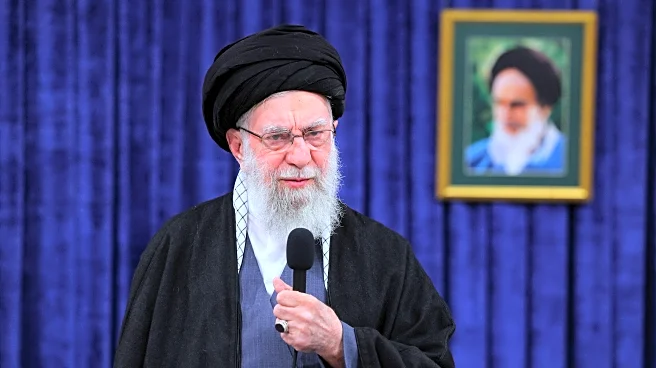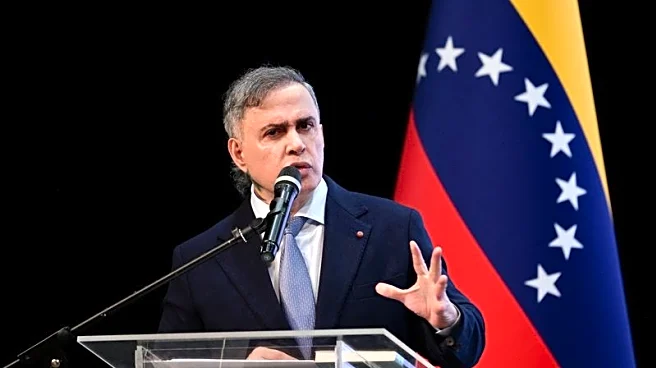What is the story about?
What's Happening?
The United Kingdom is contemplating collaboration with NATO to develop an integrated air and missile defense system following a recent incursion by nearly 20 Russian drones into Polish airspace. This proposal comes from the UK strategic defense review team, which includes Fiona Hill, a former White House adviser. Hill emphasized that Russia is testing the limits of European defenses, especially at a time when the U.S. military commitment to NATO is perceived as uncertain. The incursion involved drones that flew over a hundred miles into Polish territory, raising concerns about the effectiveness of current defense systems. British officials have suggested that the Project Octopus agreement with Ukraine, which involves the development of drones to intercept Russian threats, could be extended to Poland. The UK Defense Secretary, John Healey, has also proposed bolstering Poland's air defenses and potentially contributing RAF Typhoon jets to NATO's air policing missions in Eastern Europe.
Why It's Important?
This development underscores the growing tensions between NATO countries and Russia, highlighting the need for enhanced defense capabilities in Europe. The incursion by Russian drones into Polish airspace is seen as a deliberate provocation, testing NATO's readiness and response capabilities. The potential collaboration between the UK and NATO on a new missile defense system could strengthen the alliance's defensive posture, particularly on its eastern flank. This move could also signal a shift towards greater European self-reliance in defense matters, as the U.S. military's future involvement remains uncertain. The situation has significant implications for regional security and could influence future defense policies and military investments by NATO member states.
What's Next?
The UK and NATO are likely to continue discussions on the development of an integrated missile defense system. The UK may proceed with plans to enhance Poland's air defenses and contribute to NATO's air policing missions. These actions could prompt further responses from Russia, potentially escalating tensions in the region. NATO's strategic decisions in the coming months will be crucial in determining the alliance's ability to deter future provocations and maintain stability in Eastern Europe.
Beyond the Headlines
The incursion highlights the evolving nature of modern warfare, where drones and other unmanned systems play a significant role. This shift necessitates advancements in defense technology and strategy to effectively counter such threats. The situation also raises questions about the balance between offensive and defensive military capabilities within NATO, as well as the ethical implications of using advanced technologies in conflict scenarios.
